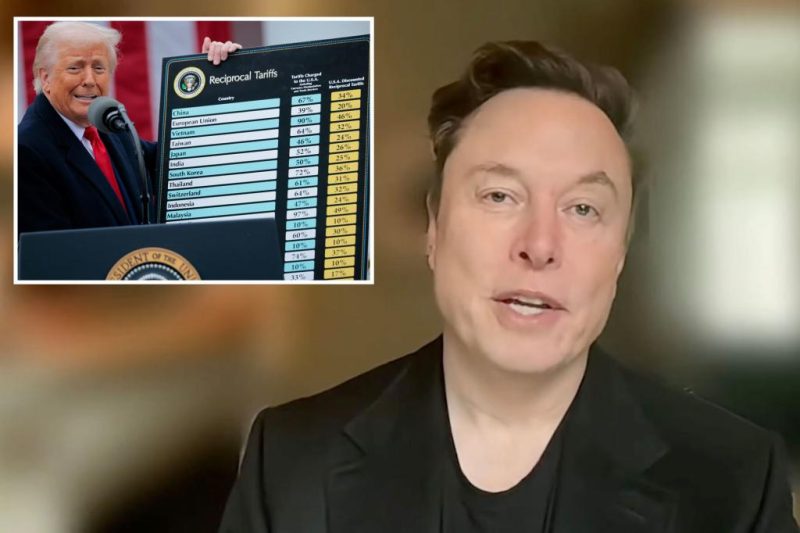
Elon Musk, the ever-outspoken CEO of Tesla and SpaceX, appears to have publicly disagreed with the Trump administration’s stance on tariffs, creating a ripple effect across the business and political landscapes. His recent comments, targeting trade advisor Peter Navarro, signal a significant departure from the generally pro-tariff rhetoric associated with the Trump era.
Musk’s frustration was evident in his statements, where he expressed a desire for a ‘zero tariff situation’ with Europe. This bold declaration directly contradicts the protectionist policies championed by the Trump administration, which often employed tariffs as a tool to leverage trade deals and protect domestic industries. The implication is clear: Musk prioritizes free trade and believes that tariffs ultimately hinder economic growth and innovation.
This public break isn’t just a minor disagreement; it highlights a growing tension between the business community and the protectionist policies that have defined recent trade relations. Many businesses, particularly those with extensive international operations like Tesla, have long argued that tariffs increase costs, limit market access, and ultimately harm competitiveness. Musk’s outspokenness serves as a powerful voice for this perspective, potentially influencing other businesses to publicly question the efficacy of protectionist measures.
The clash with Peter Navarro, a prominent figure known for his hawkish stance on trade, further underscores the depth of Musk’s disagreement. Navarro’s staunch advocacy for tariffs positions him as a direct foil to Musk’s vision of frictionless global trade. This public disagreement raises questions about the internal dynamics within the Trump administration and the extent to which differing viewpoints on trade policy are tolerated.
The long-term implications of Musk’s stance remain to be seen. However, his public challenge to the administration’s tariff policies signifies a potential shift in the debate surrounding trade and protectionism. It will be interesting to observe how the administration responds and whether other prominent business leaders follow Musk’s lead in voicing their concerns about the impact of tariffs on the global economy.









